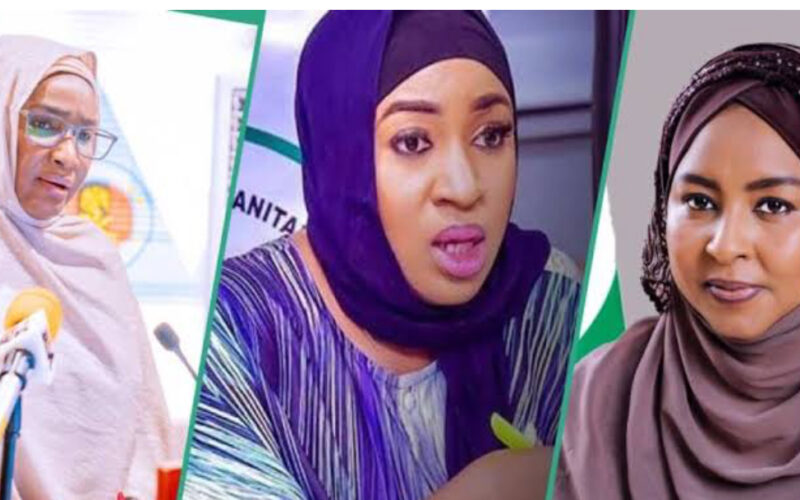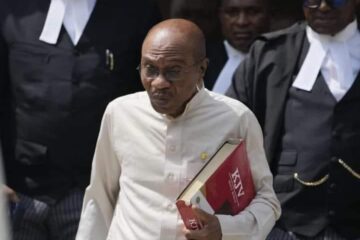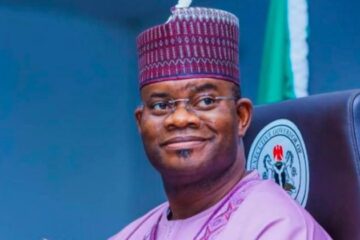An investigation has revealed that at least N159.6 billion ($352 million) was paid into private accounts by various ministries, departments, and agencies (MDAs) of the Nigerian government in the last six years.
The findings come amidst the ongoing suspension of Minister of Humanitarian Affairs, Betta Edu, who was accused of authorizing the payment of N585.2 million into a private account.
The investigation, conducted by PremiumTimes based on data from Govspend, a platform tracking government spending, revealed that several MDAs made questionable payments into private accounts.
The Office of the Special Adviser to the President on Niger Delta tops the list of offenders, having paid N8.3 billion ($20 million) to an ex-militant leader in 130 transactions.
The Nigerian office of the New Partnership for African Development, the Ministry of Information and Culture, the Ministry of Women Affairs, and even the Economic and Financial Crimes Commission (EFCC) were found to have made suspicious payments into private accounts.
Others include the Ministry of Aviation and Aerospace Development, Ministry of Petroleum Resources, Budget Office of the Federation, National Human Rights Commission, Police Formations and Commands, Nigeria Police Academy Wudil, Kano, National Directorate of Employment, National Commission for Refugees, Auditor General for the Federation, National Commission for Persons with Disability, Ministry of Communications and Digital Economy, and Federal Character Commission amongst others.
More than N13 billion in public funds, according to the findings, were paid into private accounts in 2023 alone, with the Office of the Secretary to the Government of the Federation and the Ministry of Humanitarian Affairs among the violators.
The report noted that while some payments may be legitimate, others were suspicious. For instance, even the EFCC, tasked with fighting corruption, paid N211.7 million into two private accounts last year.
EFCC was said to have made two transactions between May and October last year, paying a total of N211.7 million into two private accounts; one for Aliyu Naibi (N154,974,745.00) and the other for Abdullahi Mohammed (N56,767,056.83).
Another one is that of the Nigeria Police Force where N89.8 million was paid to a former spokesperson, Frank Mba, for “airing a police program on TV.”
Meanwhile, chapter seven, section 713 of Nigeria’s Financial Regulations 2009 explicitly prohibits paying public funds into private accounts.
In total, the police force, police formations and commands and Nigeria Police Academy in Wudil, Kano paid N173.8 million into five individual accounts, according to the investigation.
Also, the Ministry of Finance, Budget and National Planning paid N1.5 billion in tranches to 16 individuals for various projects and services between February and December of 2023.
The Deputy Director of Fiscal Accounts in the office of the Accountant General of the Federation, James Abalaka, said that the Financial Regulations 2009 recognises circumstances in which public money can be paid into private accounts.
Chapter 10, Section 1001 of the regulations sheds light on what it described as ‘imprest’, which is “applicable to all sums advanced to a public officer to meet expenditure under current estimates, for which vouchers cannot immediately be presented to a Sub- Accounting Officer for payment.”
“Imprests are issued by the Accountant-General of the Federation and the Accounting Officers of Self-Accounting ministries/extra-ministerial offices and other arms of government,” section 1002 explains further. “The authority for issuing Imprests is conveyed in the Annual General Imprest Warrant issued by the ‘Minister of Finance to the Accountant-General.”
According to the financial regulation, there are two types of imprest namely: standing imprest and special imprests. The latter which is granted for a particular purpose “must be retired in full when the purpose has been achieved.”
The former “may be replenished from time to time during a financial year by the submission of paid vouchers to Sub-Accounting Officers for reimbursement.”
Mr Abalaka noted that MDAs are responsible for money paid into private accounts. According to him, the accountant general’s office through the Government Integrated Financial and Management Information System (GIFMIS) only facilitates payments of vouchers raised by MDAs.
Mr Abalaka told PremiumTimes that there are three layers — initiator, reviewer and final approval — of payments in every MDA.
“The initiator is someone who initiates payment after a permanent secretary’s approval,” he explained. “The reviewer then reviews it and checks whether there are adjustments to be made before passing it for final approval where the Central Bank of Nigeria (CBN) makes the payments.”
The accountant general’s office, he explained, only makes the government’s daily expenditures open through the open treasury portal and is not responsible for any payment made “except the one made within the AGF office.”
He, however, declined comment on the N11.5 million paid to one Lanre Gbajabiamila by the accountant-general’s office.
On 25 September 2023, N5.7 million was paid to Mr Gbajabiamila as “Payment of furniture allowance to 19 political office holders.” The same amount was in 2018 paid into his account for a similar purpose.
The findings also show that some high-profile Nigerians were beneficiaries of some of the payments made into individual accounts.




